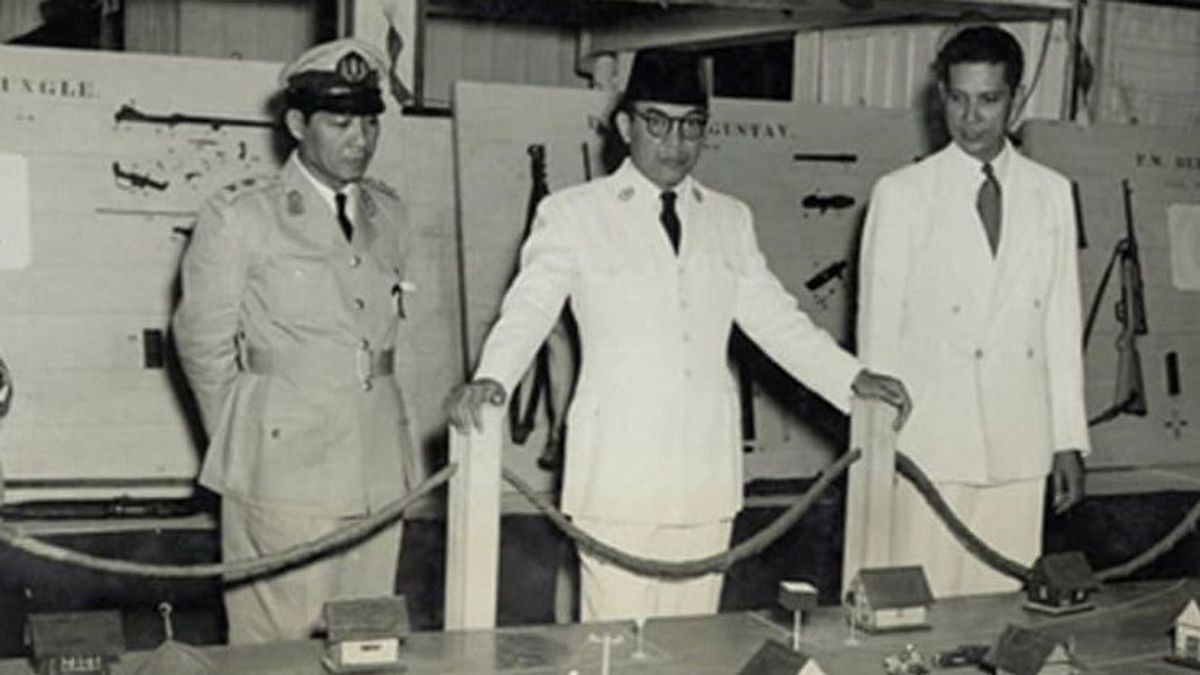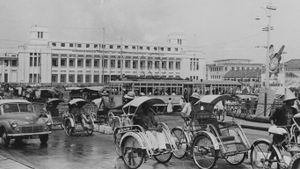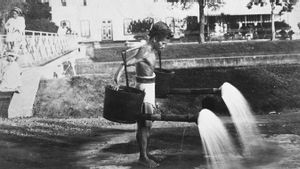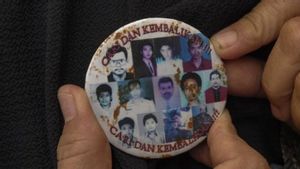JAKARTA History today, 64 years ago, August 26, 1959, the Indonesian government changed the term National Police Chief (now: National Police Chief) to Young Police Minister. The change also applies to the Djawatan of the State Police (now: Police) changing to become the Police Department.
Even though it changed, the position of police leader was still held by General Soekanto. Previously, Soekanto was given a mandate by Bung Karno to build the police force. He was later remembered as Indonesia's first National Police Chief.
The figure of the bumiputras who had a brilliant career as police officers in the Dutch and Japanese colonial era was not much. The narrative is because not all natives can take part in police education. Those who can participate in education are among the lucky groups.
Raden Said (RS) Soekanto Tjokrodiatmodjo, for example. At first Soekanto's decision to become a police officer created an inner turmoil. He had the dream of an independent Indonesia, but chose to come in to help the Dutch work as a police officer.
In particular, the inner turmoil did not last long. His comrades in arms from Iwa Kusumasumantri to Sartono supported his intention to become a police officer. They also gave Soekanto input to fight as a corporate fighter. Alias the freedom fighter from within the Dutch colonial body.
Soekanto also took advantage of education as a police officer to the fullest. An aspiration is achieved in his marriage. He wanted to build the Indonesian police during independence. All kinds of lessons he absorbed were well.
Ulam's beloved pinnacle arrives. He managed to become a police officer, even reaching the highest rank ever achieved by the police from the bumiputras. Even during the Japanese colonial period Soekanto moved to become a young police educator, including Hoegeng Imam Santoso.
He also educated the new police by giving awareness of independence until the dream became real. Soekanto was even unexpectedly appointed by Soekarno as Head of State Police on September 29, 1945.
Furthermore, Sartono and Iwa Kusamasumatri brought Soekanto to the first cabinet meeting under the leadership of President Soekarno which was held on September 29, 1945. They knew that the government needed a police chief. Must not sit in government, both of them were Bung Karno's advisers at the beginning of independence. Sartono was a defender of Soekarno when he was tried by the Dutch in Bandung in 1930.
"On that same day, September 29, 1945, President Soekarno welcomed Soekanto's arrival and then appointed him as Head of the National Police (now: Chief of Police) with the mandate: Form of National Police. Soekanto was surprised, and was without preparation to be appointed as Chief of Police without official ceremonies," said Awaloedin Djamin and G. Ambar Wulan in the book of Police General RS Soekanto Tjokrodiatmodjo (2016).
The mandate to build the National Police Department is not easy. Soekanto often racked his brain for it. However, he did not give up. With experience and patience, he began to lay the foundation of the police. He formed various police units. From polarirud to policewomen.
VOIR éGALEMENT:
Even in the Soekanto administration, the Indonesian police continue to grow. Even though the name of the institution continues to change and changes responsibility from one ministry to another. Soekanto doesn't care. Because, his intention is to build the Indonesian police.
As a result, his former position as National Police Chief changed to become Deputy Minister of Police. The change also applies to the Djawatan of the State Police to the Department of Police under which the First Minister (formerly Prime Minister) and President of Indonesia, Soekarno. All of this was stated in the Circular Letter of the First Minister No. 1/MP/RI/1959 on August 26, 1959.
With the announcement of the President's Decree to return to the 1945 Constitution, the Status of the State Police has experienced important changes. With the Decree of the President of the Republic of Indonesia No. 154/1959 dated July 15, 1959, as well as a circular letter from the First Minister on August 26, 1959 No. 1/MP/R1/1959 as the Head of State Police was replaced with the Minister of Youth and Police.
Meanwhile, the National Police Department became the Department of Police, in accordance with Article 17 paragraph 5 of the 1945 Constitution. Young Minister of Police (called Minister) led the Police Department, established general wisdom based on Government politics, and held the leadership and general supervision of the National Police. To assist in carrying out the duties of the Minister, an institution was formed by the Directorate General led by a Director, "explained Memet Tanumidjaja in the book The Ministry of Development of the Police Force (1971).
The English, Chinese, Japanese, Arabic, and French versions are automatically generated by the AI. So there may still be inaccuracies in translating, please always see Indonesian as our main language. (system supported by DigitalSiber.id)


















